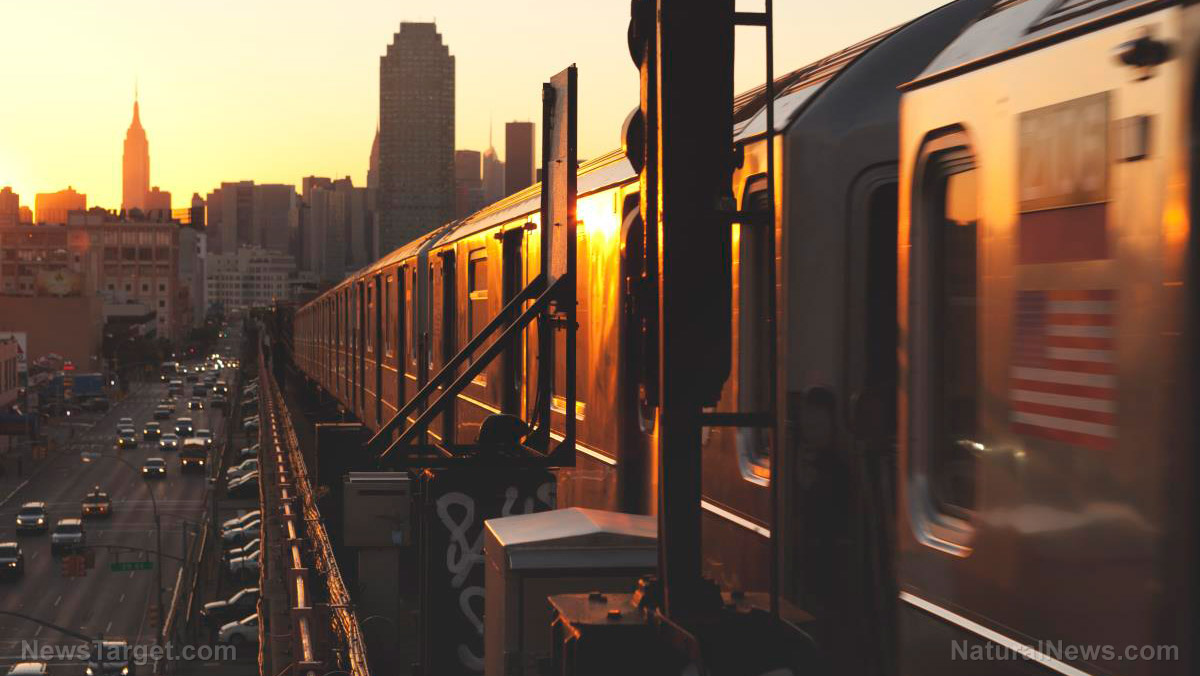
A proposed bill would have residents of New York City pay extra tax on packages ordered online that aren't food or medicine to help with the Metropolitan Transport Authority's (MTA) budget crisis.
Proposed by Robert Carroll, a Democratic member of the New York State Assembly, the bill would add a three-dollar surcharge on "online delivery transactions terminating within the city of New York" that would be used to fund the operating costs of the city's buses and subways.
In a joint op-ed published Monday in the New York Daily News, Carroll and John Samuelsen, the international president of the Transport Workers Union, defended the proposal, saying that it was designed to target companies such as Amazon that have profited during the pandemic.
"The delivery siege will only get worse," Carroll and Samuelsen wrote. "Online commerce is booming. Amazon's profits are up 53% compared to last year."
An analysis by the Institute for Policy Studies recently stated that Amazon CEO Jeff Bezos saw his wealth grow by nearly $70 billion since Match. Meanwhile, an October report by Business Insider revealed that U.S. billionaires have added $637 billion to their portfolios during the Wuhan coronavirus pandemic.
In addition, Carroll and Samuelsen said that while online shopping is "cheap and convenient," they believe that the bill will encourage people to shop at local businesses instead.
Response to the proposed bill has been critical, with even other Democrats calling out Carroll for the bill.
"Maybe instead of taxing people who need baby formula and essential goods, we tax those who have profited billions from a global pandemic," tweeted Rep. Alexandra Ocasio-Cortez.
Bill aimed at helping the MTA meet its budget deficit, but transport officials prefer bailout
Online sales have totaled $209.5 billion in the third quarter of 2020 – 36 percent more than last year – according to the Department of Commerce. Carroll's bill looks to tap into some of this to cover the MTA's budget deficit and stave off service cuts.
The ongoing pandemic has plunged New York City's public transit system into its worst financial crisis, with it facing a $15.9 billion deficit through 2024. The budget hole is the largest the MTA has faced in its history, dwarfing the $400 million deficit it faced during the 2008 financial crisis.
Because of the deficit, MTA officials have warned of devastating cuts. These include slashing subway and bus services by 40 percent and cutting commuter rail service in half. Of these, busses look to take the brunt of the cuts. More than half of the over 9,000 transit jobs that the MTA has proposed eliminating would come from the division that runs buses. (Related: New York City is "dead forever" says proud New Yorker.)
Despite efforts such as Carroll's bill, MTA officials are looking to a federal bailout to avoid having to move forward with its cuts.
"We have been clear only $12 billion in federal relief can prevent drastic service cuts, layoffs and gutting our historic capital plan that would devastate our colleagues and customers," said MTA communications director Tim Minton in a statement. "While the MTA welcomes creative solutions and any new revenue, the proposal is subject to the state legislative process and cannot itself solve the problem, which is why we urge continued advocacy in Washington."
MTA chairman Patrick J. Foye has added that anything less than the $12 billion that the agency is asking for would force them to "look at everything on the table and make a decision as to whether service reductions at that level were still required."
Treasury secretary, Steven Mnuchin, has suggested that the MTA could borrow money as a means to get out of its deficit – an idea that many financial experts dispute.
Debt service already consumes about 16 percent of the agency's budget and ability to spend money to run buses and trains, experts say.
"If you rack up too much debt you don’t have enough money for your other operations," explained Andrew Rein, president of financial watchdog Citizens Budget Commission.
Other options that the MTA is looking into include a far hike that could see ticket prices increase by around four percent next year. The transit agency plans to hold virtual public hearings on the proposed far hikes, which must be formally approved by the MTA board by Dec. 21.
For more on how much the MTA and other government agencies are trying to recoup their losses from the pandemic, follow GovernmentDebt.news.
Sources include:
Please contact us for more information.





















